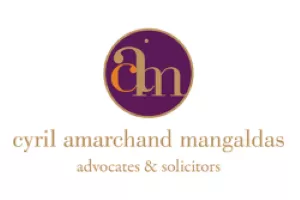Recently, the National Company Law Tribunal (NCLT) rejected Ajanta Pharma Limited's (Ajanta Pharma) scheme of amalgamation and arrangement (Scheme) between the company and its shareholder Gabs Investments Private Limited (Gabs Investments) on the grounds of General Anti Avoidance Rules (GAAR).
Facts and Background
- Gabs Investment is a private limited investment company and Ajanta Pharma is a listed, pharmaceutical company.
- While the entire shareholding of Gabs Investments is held by Agrawal Family Members (Promoters), both Gabs Investments and Agrawal Family Members are shareholders and promoters of Ajanta Pharma.
- In the present Scheme, Gabs Investments was proposed to be merged into Ajanta Pharma, with shares to be allotted to the shareholders of Gabs Investments.
- Consequently, the shareholding of Gabs Investments in Ajanta Pharma would have been cancelled.
- The rationale of the merger, as
proposed in the Scheme, was:
"The merger will result in the promoter group of Gabs Investments to directly hold shares in Ajanta Pharma, which will lead to simplification and rationalisation of the shareholding structure and reduction of shareholding tiers. This will also demonstrate the promoter group's direct commitment to, and engagement with, Ajanta Pharma." - Effectively, pursuant to the proposed Scheme, individual Promoters would have received proportionate shares in Ajanta Pharma.
Objections of the Income Tax Authorities (IT Authorities)
As per section 230(5) of the Companies Act, 2013, it is now mandatory to send a notice with all the documents to central Government, IT authorities, the Reserve Bank of India, and the Securities and Exchange Board of India (SEBI), etc., for their representations.
The IT Authorities raised objections alleging that the Scheme was a deliberate measure to avoid a tax burden by using the via-media of NCLT, and that it was nothing but round-trip financing, which included a transfer of funds among the parties to the arrangements through a series of transactions. The following contentions were raised to allege tax avoidance:
- Gabs Investments being a private limited company has to be considered as a separate entity from its Promoter shareholders and, thus, any "assets" of Gabs Investments cannot be repatriated to the shareholders without incurring tax costs. If assets were to be distributed to the Promoters as dividends, then such income would be subject to Dividend Distribution Tax (DDT) @ 20% in the hands of Gabs Investments. Accordingly, this DDT would be lost if the amalgamation scheme is approved.
- Similarly, if the "assets" are distributed to the Promoters by way of sale of shares, then since Gabs Investments is in the business of investments and dealing in equity shares, once the equity shares are sold in the market, it would earn business profit. On that business profit, income tax @ 30% under the normal provisions of the Income tax or Minimum Alternate Tax (MAT) @ 20% under section 115JB would be payable by Gabs Investments. This tax would be lost if the scheme were approved by the NCLT.
- The Income Tax Department thus submitted that if the Scheme were approved, it would lead to a loss of more than INR 400 crores to the Revenue. It was also contended that in view of the GAAR, the Scheme should be construed as an Impermissible Avoidance Agreement (IAA) and, thus, should not be allowed by the NCLT.
Decision of the NCLT
The NCLT examined all the facts, especially the financials of Gabs Investments in detail and observed that Gabs Investments was incorporated in the year 1995 while Ajanta Pharma has been operational since 1975. The main objective of Gabs investments was to carry on the business as an investment company and has been purchasing shares of APL from the secondary market at various points of time and at various prices. Accordingly, they observed that the submission of the petitioner company – i.e. Gab Investments – as a promoter company of Ajanta Pharma with the sole object of holding investment in Ajanta Pharma is factually incorrect. It further observed Gab Investments has been incurring loss and its financials were weak.
After examining the rationale of the Scheme, the NCLT held that the Scheme was unjustified, as the Promoters would directly hold shares of the Ajanta Pharma and would effectively continue to hold the same percentage of shares pre and post amalgamation. Based on the fact pattern, it further observed that the Scheme would only benefit and allow unfair advantage to the common promoters of both transferor and transferee companies and was devised only to benefit them without serving any public interest.
In view of the objections raised by the IT Authorities about potential tax benefit, tax avoidance and tax loss including GAAR, the NCLT rejected the Scheme.
CAM Comments
In this ruling, the NCLT rejected the Scheme based on an allegation of tax avoidance, applicability of GAAR and potential loss to exchequer without discussing the merit of the objections raised.
In the past, similar schemes have been approved, wherein the courts have indicated that their sanction should not bar IT authorities from proceeding against parties in the event there is a non-compliance of IT Act.1 In Vodafone Essar Gujarat Ltd.2, the Supreme Court dismissed the Revenue's appeal against the Gujarat High Court (HC) order sanctioning the scheme of arrangement. Further, the Gujarat HC acknowledged that, if the scheme were sanctioned, it would no doubt result in tax avoidance on the part of the appellant but it could not be said that the only object of the scheme is tax avoidance. In its commercial wisdom, if the company had decided to have a particular arrangement by which there may even be benefit of saving income tax, that itself could not be a ground for coming to the conclusion that the sole object of framing the scheme is to defraud the Department.
Nonetheless, with the advent of the GAAR this year, structuring of transactions is expected to become more vexed. Moreover, the Central Board of Direct Taxation (CBDT) has clarified3 that GAAR will not apply to an arrangement where the NCLT has "explicitly and adequately" considered its tax implication. As a result, all future Schemes proposed to be presented to the NCLT may have to be smell tested for GAAR before they are submitted with the NCLT.
In view of this, all future structuring options should be examined from the perspective of GAAR and it should be ensured that they have strong commercial rationale supporting the transaction. The taxpayers could also approach the Authority for Advance Rulings for achieving certainty and clarity.
Footnotes
[1] In re: AVM Capital Services Pvt. Ltd., 2012 (114) BomLR2533; Vodafone Essar Ltd. and ors. v. Vodafone Essar Infrastructure Ltd, MANU/DE/0992/2011; In Re: Indo Continental Hotels and Resorts Ltd.; In Re: Hotel Pink City Pvt. Ltd, [1990]69CompCas93(Raj);
[2] DIT v. Vodafone Essar Gujrat Limited, TS-197-SC-2015.
[3] Circular No. 1 of 2017 dated 27.01.2017.
The content of this article is intended to provide a general guide to the subject matter. Specialist advice should be sought about your specific circumstances.



